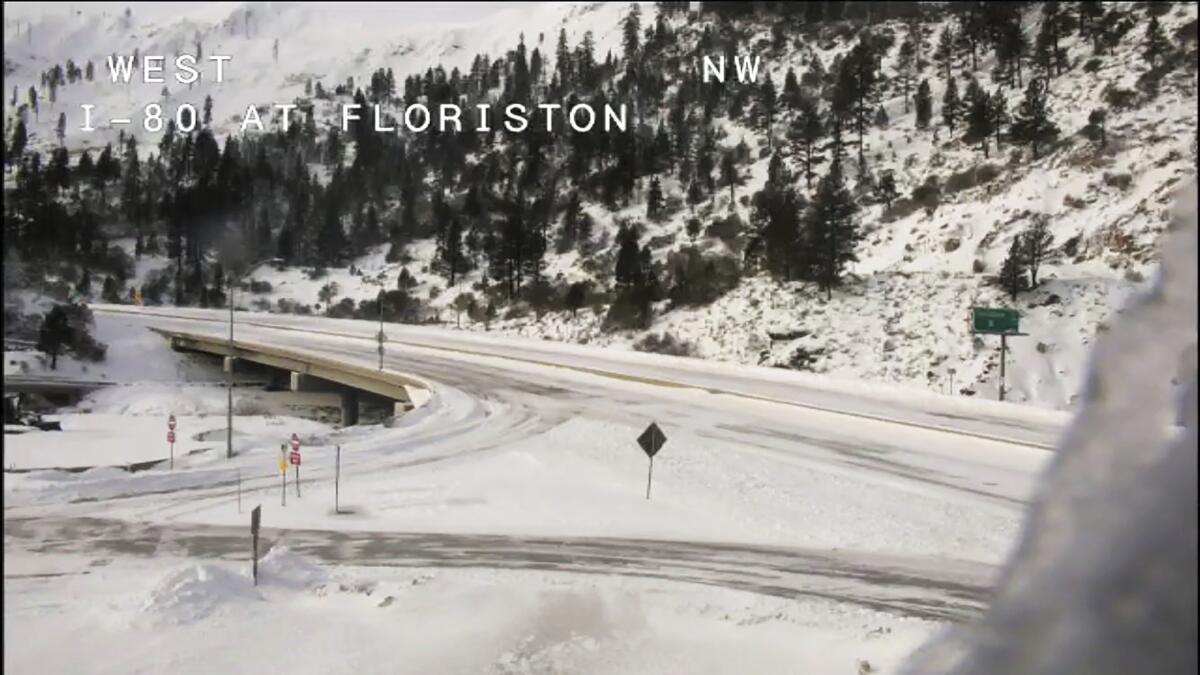Nevada governor declares snow emergency; bitter cold on the way

RENO — The coldest weather to hit the Reno-Tahoe area in nearly five years is expected to arrive by the weekend on the heels of a series of storms that have dumped more than 10 feet of snow on parts of the Sierra over the last week and continue to wreak havoc on travel.
The aftermath of the storms again snarled traffic on Interstate 80 and state highways around Lake Tahoe on Wednesday. Gov. Steve Sisolak declared a state of emergency for northern Nevada along the Sierra’s eastern front due to the snowy conditions.
“Crews are battling fallen trees and power lines as well as seven-day snow totals of 6 to 11 feet,” the National Weather Service said.
A winter weather advisory remained in effect through 10 p.m. Wednesday around Lake Tahoe, where a couple of more inches of snow were expected at lake level and up to 6 inches above elevations of 7,000 feet . Flurries were falling again Wednesday in Reno-Sparks.
The service said the next front coming in from the north will bring the region the “coldest air in nearly five years” with single-digit lows in Reno by Friday night, and temperatures well below zero early Saturday and Sunday in the Sierra and around Lake Tahoe.
The Douglas County Community & Senior Center opened a warming shelter in rural Gardnerville south of Carson City in anticipation of the bitter cold.
On Wednesday, I-80 was reopened from the California-Nevada line to near Truckee, Calif., but chains were mandatory for about a 40-mile stretch west of Truckee to Gold Run, Calif., for all vehicles except those with four-wheel drive and snow tires. Chains also were required on most all other highways in and around Lake Tahoe.
The California Highway Patrol warned travel was extremely slow on I-80 due to backed-up traffic where icy conditions persist and urged motorists to avoid any non-essential travel.
“The last thing we want is for I-80 to close due to traffic collisions,” the patrol tweeted.
A statement released by Sisolak’s office said the emergency declaration will allow state officials to order vehicles traveling on mountain highways to turn around and return to lower elevations until weather conditions subside and the roadways are safe to use.
“This will help prevent motorists from becoming stranded overnight on the roadways, potentially running out of gas in subfreezing temperatures without access to emergency services,” the statement said.
It said that U.S. 50 and State Routes 207 and 28 were experiencing long delays and dangerous conditions and that authorities need to be able to clear the roadways to make room for emergency vehicles and snowplows.
More to Read
Sign up for Essential California
The most important California stories and recommendations in your inbox every morning.
You may occasionally receive promotional content from the Los Angeles Times.










